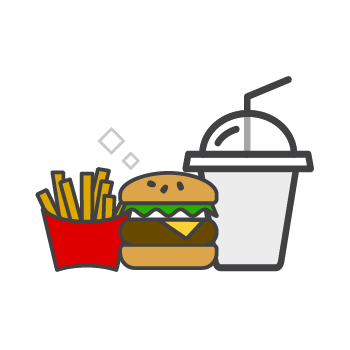Here’s What Science Has to Say About the Benefits of Fasting
by Lou-Ann Jordan Mar 20, 2023

Although in recent times, fasting as a mode of diet has grown in popularity, the practice dates back centuries. It is quite common among many cultures and world religions.
Arguably, within our region, health, cultural, and religious sentiments tend to be the main reasons for fasting. That being said, let’s talk about fasting.
Have you ever wondered what happens to your body when you fast? Moreover, what about the benefits? Detoxing aside, you might not have been aware that there are science-backed benefits. Also, most importantly, do you practice a safe and healthy method? If you’re unable to answer any of these questions, have no fear; this article is for you.
What is fasting?
Fasting is abstaining from some or all food and drink for an established period. People abstain for set hours such as 12, 16, 24, or even 72 hours. Other types of fasting include intermittent and alternate-day fasting. Intermittent fasting entails periods of eating and abstaining that can range from a few hours to several days. In contrast, alternate-day fasting is done every other day; so a day of food abstinence is followed by a day of eating.
How to practice safe fasting?
Our bodies need food. The vitamins and minerals, as well as the other nutrients we get from our meals, are essential in maintaining optimal health. When contemplating fasting, you should take into consideration other health issues and the effects that it may have. People with diabetes, for instance, may not want to fast because it will cause their blood sugar levels to fluctuate. Additionally, fasting for an extended period is terrible for your health. It is best that you consult with your medical practitioner before you do.
What are the benefits of fasting?
We’ve come to the good stuff. If you routinely fast for health reasons, then you’re aware that there are benefits to denying that hunger. However, for those who do it occasionally for more religious reasons, there are significant paybacks.
1. Controls blood sugar. Intermittent fasting helps to decrease blood sugar levels. Also, it reduces insulin resistance allowing efficient movement of glucose from your bloodstream to your cells. A combination of reduced glucose levels and insulin resistance can help keep your blood sugar steady, preventing dangerous fluctuation.
2. Decreases inflammation. PubMed documents a study conducted with 50 healthy people who engaged in an intermittent fast for one month that showed reduced signs of inflammation.
3. Promotes a healthy heart. Fasting has been linked to lowering blood pressure, triglycerides and cholesterol levels. This, in turn, reduces your risk of heart disease.
4. Improves brain function. Fasting has been found to not only improve brain health but also boost cognitive function. Additionally, because it reduces inflammation, fasting may help protect against neurodegenerative disorders like Alzheimer’s and Parkinson’s diseases.
5. Supports weight loss. First, abstaining from food decreases your calorie intake, and over time, this leads to weight loss. Also, researchers have found that fasting boosts your metabolism and maintains muscle tissue to reduce body and weight fat.
What can you digest when fasting?
For the fast to be beneficial, you must stay in fasting mode. This mode is officially termed “gluconeogenesis,” and it is triggered when your body has used up the last of its glucose reserves.
Drinking water will not disrupt your fast. Even when not fasting, the daily recommended water intake is eight 8-ounce glasses. You can maintain or increase your intake when fasting. In addition to water, you can have ginger, mint, or green tea. Be sure to stay away from acidic beverages during or immediately after fasting.
Whatever type of fast you choose, enjoy the benefits that come with it. The best part is this isn’t speculation. These benefits have been scientifically proven.
However, before you start your fast check with your medical professional to ensure your current health permits it.
Sources: WebMD, PubMed, Healthline, Organic Facts, and Medical News Today








